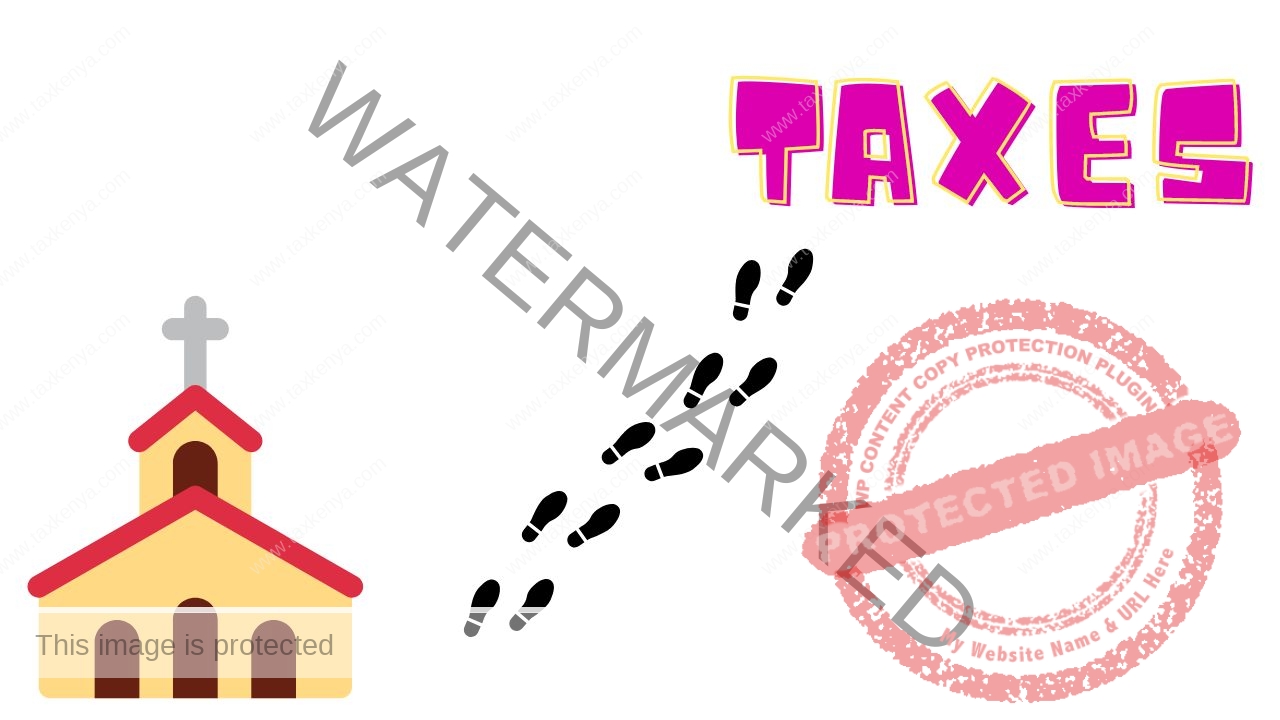Churches are expected to comply with the laws of the land, including tax laws. For taxation purposes, Churches have PINs. If the Churches fail to comply with the tax laws, they are not treated exceptionally. The Churches are treated like any other person registered for taxation. The Churches will pay fines, penalties and interests. However, there are several steps that Churches can take to improve their tax compliance and avoid the extra tax payments of fines, penalties and interests.
The following are some of the steps that the Churches can take.
1. Register for the necessary taxes
No Church is exempted from paying taxes in Kenya. Churches must register for tax and get Personal Identification Numbers (PINs). However, some activities by the Churches may be exempted. Therefore, Churches must register for all tax obligations where applicable.
For example, if Churches have transactions subject to VAT, such as restaurant services, they must register for VAT. This is subject to the various thresholds set in the tax laws.
2. Know the taxes that the Church is expected to comply with
It is not enough to register with the tax authority. The Church must comply with the tax requirements. The Churches need to understand that only the tithe, offerings and donations to the Churches are not subject to taxation. these are the monies that the Church receives and is not expected to deliver anything in return.
Any other money the Church receives is subject to taxation. For example, churches advertise on television for people to pay kshs 310 or other sums for prayers. This may be considered payment for a service subject to income tax in Kenya.
3. Maintain proper records
Churches must maintain records of all the money they receive and how they use it. The Churches must also account for the sources of the money. Failure to do this exposes the Church to tax fines, penalties and interests.
4. File tax returns and pay taxes
Churches are expected to comply with tax laws. The pastor, together with the management of the Church, should know what is required of them. They should file the tax returns and remit the taxes when due. They will be following one of the edicts of the Bible of obeying the earthly rulers.
5. Employ qualified employees
In some Churches, the pastor and his wife are everything. They do not recognize the importance of employing qualified people to handle the various departments that require a specialized workforce, such as the accounts departments. Though it is expensive to employ highly qualified employees, the Church will save on the extra tax payments of fines, penalties and interests at the end of the day.
6. Audit book of accounts
In every year of income, Churches should audit their books of accounts. This will help the Churches gauge their operations and fulfil legal requirements. Thereafter, the Church should submit the necessary returns to the tax authority as the law requires.
7. Formalize Churches business
It is important to separate the business of the Church from the business of the pastor or the organisation that owns the Church. A Church is not personal property. Some Churches are in pastor’s wallets or handbags. A Church is public property owned by the public, not private property.
Hence, all Church businesses should be formalized so pastors can de-link themselves from the Church and its activities. A pastor is an employee of the Church. There will be continuity in the Church when the pastor is not around. Many times, pastors do not separate Church business and personal business.
Sometimes people pay donations, tithes and offerings in the pastor’s name. They may also deposit donations, tithes or offerings into the bank account in the pastor’s name. It becomes very difficult to convince KRA that the money that the pastor received or was deposited in his/her bank account was Church money, not personal money, which should be subject to taxation.
It is important to note that as long as Church donations, tithes or offerings are received in the name of an individual and not in the name of the Church, there is the risk of the money being treated as personal money. The money will be subjected to income tax and all other taxes applicable in the Country.
8. Seek necessary information
The Church can seek necessary tax information from various sources. For example, the Church can ask KRA to teach them about tax. The Church can organize for its employees to attend tax seminars and conferences outside the workplace. The Church can also hire people to teach its employees and directors the requirements of tax law. The Churches can also conduct seminars or conferences and invite members of other Churches to attend.
9. Clean their tax ledger
Occasionally, the Church should examine its tax ledger and ensure it is clean. Cleaning the tax ledgers is tax parlance which means ensuring that all debits and credits in the tax ledger are correct.
10. Retain services of tax experts
Pastors are experts in religious matters. There are experts in tax matters. Therefore, Churches should retain the services of tax experts. Churches can seek tax services from consultants, lawyers, auditors, tax accountants etc. The fees may be high, but at the end of the day, it is far cheaper. The Churches will save money by not paying extra taxes such as fines, penalties and interests.
This post explained ten steps on what Churches can do to improve tax compliance. There are very many other steps that Churches can undertake to enable them to become tax compliant.
This was the third post on the taxation of Church money. Previous posts have been on the taxation of money received by the Church and the taxation of money paid out by the Church.
Feel free to send us questions or topics on tax and investments in Kenya that you would wish to be covered on this Website.
Disclaimer
This post is for a general overview and guidance and does not in any way amount to professional advice. Consequently, www.taxkenya.com, its owner or its associates do not take any responsibility for the results of any action based on the information in this post or for any errors or omissions. Kenyan taxpayers must always rely on the most current information from KRA. The tax industry in Kenya is very dynamic.
Email: taxkenya@gmail.com




